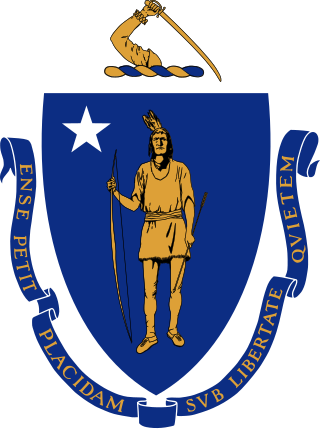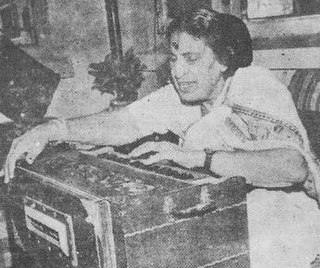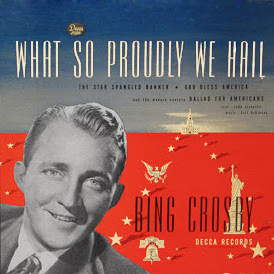
"Yankee Doodle" is a traditional song and nursery rhyme, the early versions of which predate the Seven Years' War and American Revolutionary War. It is often sung patriotically in the United States today. It is the state anthem of Connecticut. Its Roud Folk Song Index number is 4501.

Swathi Kiranam is a 1992 Telugu-language musical drama film directed by K. Viswanath. Produced by V. Madhusudhana Rao, the film starred Mammootty in his Telugu debut, Master Manjunath and Radhika, along with Achyuth, Jayanthi, Sakshi Ranga Rao, Dubbing Janaki and Dharmavarapu Subramanyam in supporting roles. The film is about an egotistical music teacher envious of the immense talent of his prodigious young disciple, and depicts their tumultuous relationship.

"Hail! Minnesota" is the regional anthem of the U.S. state of Minnesota. A variation is used as a school song of the University of Minnesota. It originated at the university in the early 20th century when some students decided to honor their graduating class with a new song. In 1945, the Minnesota State Legislature approved the tune as the state song.

"O Tannenbaum", known in English as "O Christmas Tree", is a German Christmas song. Based on a traditional folk song that was unrelated to the holiday, it became associated with the traditional Christmas tree.
In music, a reprise is the repetition or reiteration of the opening material later in a composition as occurs in the recapitulation of sonata form, though—originally in the 18th century—was simply any repeated section, such as is indicated by beginning and ending repeat signs.

"Far Above Cayuga's Waters" is Cornell University's alma mater. The lyrics were written circa 1870 by roommates Archibald Croswell Weeks, and Wilmot Moses Smith, and set to the tune of "Annie Lisle", a popular 1857 ballad by H. S. Thompson about a heroine dying of tuberculosis.

"O du lieber Augustin" is a popular Viennese song, first published about 1800. It is said to refer to the balladeer Marx Augustin and his brush with death in 1679. Augustin himself is sometimes named as the author, but the origin is unclear.
Woodrow Wilson "Red" Sovine was an American country music singer and songwriter associated with truck driving songs, particularly those recited as narratives but set to music. His most noted examples are "Giddyup Go" (1965) and "Teddy Bear" (1976), both of which topped the Billboard Hot Country Songs chart.

Andrew Abraham is a British singer. He was the runner-up in the second UK series of TV talent show The X Factor in 2005 to Shayne Ward, and also represented the United Kingdom in the Eurovision Song Contest 2008.

"All Hail to Massachusetts", with words and music by Arthur James Marsh, was made the official state song of Massachusetts on September 3, 1966, and codified by an act of the General Court in 1966. The song, written originally in the Spring of 1954 by Marsh, a Wellesley music teacher who intended to make it an official anthem, was first performed on August 15, 1954, at the bandstand of Paragon Park, Nantasket Beach in Hull. Following three previous attempts by the legislature to designate a state song in 1958, 1961, and 1964, this song was selected as the state song in June 1966. The final commission which picked the tune was chaired by Arthur Fiedler, conductor of the Boston Pops, along with Erich Leinsdorf, with the support of fellow Boston Pops musicians Harry Ellis Dickson and Leo Litwin, and Peter Siragusa, then-director of music for Boston Public Schools. The commission's legislators were state senator James A. Kelly Jr., as well as representatives David M. Bartley and John M. Melia. With its enactment as the state song, it entered the public domain, with the act including a "properly executed transfer of the copyright to said song to the commonwealth."

"Did You Ever See a Lassie?" is a traditional Scottish folk song with a Roud Folk Song Index number of 5040.
"Wee Cooper O'Fife" is a Scottish folk song about a cooper who has "a braw new wife" who will not cook, clean, and sew in case she "spoil her comely hue". A town in Fife is called Cupar; this is a pun.

"The Gold Diggers' Song " is a song from the 1933 Warner Bros. film Gold Diggers of 1933, sung in the opening sequence by Ginger Rogers and chorus. The entire song is never performed in the 1933 movie, though it introduces the film in the opening scene. Later in the movie, the tune is heard off stage in rehearsal as the director continues a discussion on camera about other matters.
"We Hail Thee Carolina" is the alma mater of the University of South Carolina. It was adopted by the university in 1912 and is sung by alumni and students at Gamecock athletic events. The alma mater is also used to conclude each football game, home or away.
"The Wheels on the Bus" is an American folk song written by Verna Hills (1898–1990). The earliest known publishing of the lyrics is the December 1937 issue of American Childhood, originally called "The Bus", with the lyrics being "The wheels of the bus", with each verse ending in lines relevant to what the verse spoke of, as opposed to the current standard "all through the town".

Saraswati Devi, born Khorshed Minocher-Homji, was an Indian director of music and score composer who worked in Hindi cinema in the 1930s and 1940s. She is most noted for her score, Mein Ban ki Chiriyra Banke Bun Bun Bolun Re in Bombay Talkies's Achut Kanya (1936). She along with Nargis' mother & Sanjay Dutt's grandmother Jaddanbai is considered to be one of the first female music composers in Indian cinema.

What So Proudly We Hail is a compilation album of phonograph records by Bing Crosby released in 1946 featuring songs that were sung by Crosby in an American-type patriotic style. This album featured Bing singing patriotic songs such as: "Ballad for Americans", "God Bless America" and "The Star-Spangled Banner". The songs were later presented in a 33 1/3 rpm split set with The Man Without a Country.
"Stand, Columbia" is the official alma mater of Columbia University in New York City, New York. It was written in Gilbert Oakley Ward for the university's 1902 Class Day ceremonies, and is sung to the tune of Joseph Haydn's "Gott erhalte Franz den Kaiser", which served as the melody for the Austrian national anthem until 1938, and was adopted as the German national anthem in 1922. The hymn is traditionally played at the university's baccalaureate services and commencements.











